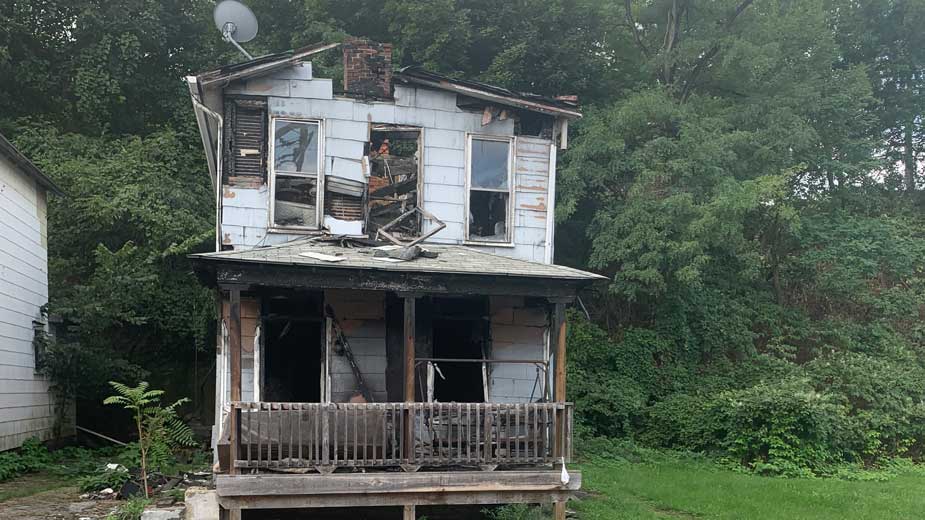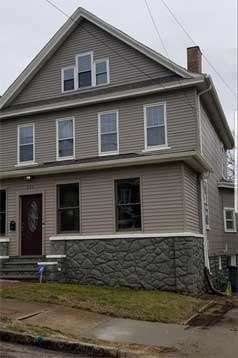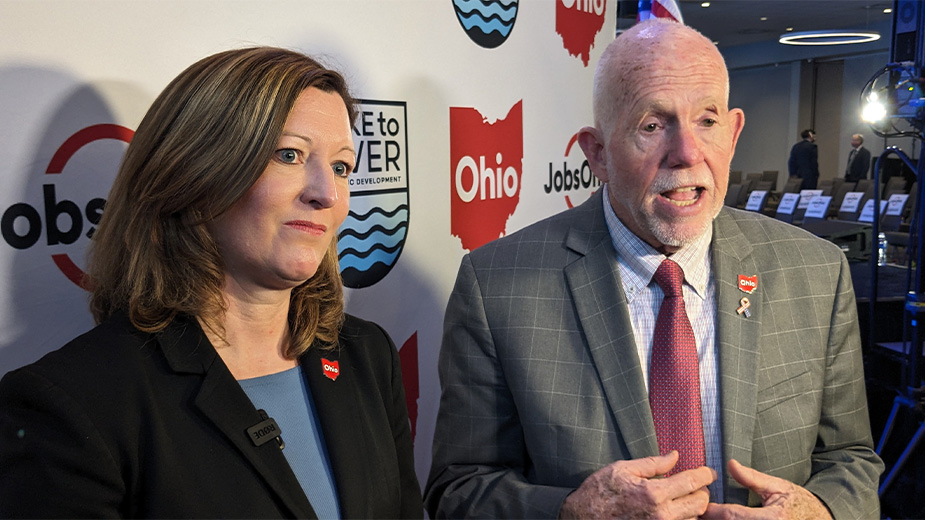Columbiana County’s New ‘Tag Team’ Targets Blight
YOUNGSTOWN, Ohio — Two men known for business and community leadership in the Mahoning Valley will soon become even better known in Columbiana County as they launch a “tag team” to address more than $18 million in delinquent property taxes.
Bryan Blakeman (above left), general manager of Valley Office Solutions in Boardman and mayor of Columbiana, and Vito Abruzzino (right), an attorney with Brouse McDowell in Canfield and director of the Eastern Ohio Military Affairs Commission, flipped two county offices one week ago, becoming the first Republicans in more than six decades to be elected Columbiana County treasurer and prosecutor.
Abruzzino won with 67% of the vote, and will replace retiring prosecutor Robert Herron; Blakeman received 59% of the vote to defeat treasurer and former state representative Linda Bolon.
That leaves just one Democrat, Clerk of Courts Anthony J. Datillio, holding a row office in Lisbon.
“We ran as a team everywhere,” says Blakeman of the GOP slate. He and Abruzzino “had a lot of cross support and much of what I ran on was trying to clean up the property tax delinquencies in Columbiana County.”
“We’ll be a tag team,” Abruzzino says.
“We’re going to be a tag team in East Liverpool and the southern part of this county,” he says. “Communities have to pull themselves up by their bootstraps, but [we have] to give them the ability to generate more income to go after delinquent properties, to remediate.”
In Ohio, when property taxes are overdue, the county treasurer must notify the prosecutor, who certifies the delinquency, enabling foreclosure to begin.
“Certified delinquencies are any property owner who is delinquent in their taxes for more than a year,” Blakeman explains. “The process is that the treasurer has to identify them and then make the recommendation to the prosecutor to take action. I’m going to be relying on Vito to help me get that part done.”
In East Liverpool, the owners of more than 1,750 properties owe a combined $1.5 million in property taxes, according to Blakeman.
“Our city’s No. 1 problem is abandoned housing,” says East Liverpool Mayor Greg Bricker. “We have houses collapsing in on themselves. Drugs are bad here and one reason why is the oversupply of cheap houses. We have squatters. They steal [city] water and set fires. It’s a huge drain on city resources.”

East Liverpool had 26,000 residents at its peak, the mayor notes. When industry exited, a mass exodus followed, dropping the population to about 10,000. “But we still have housing stock for 26,000 people,” he says.
Following his election in 2019, Bricker, a Republican, says he began to discuss the abandoned housing problem with Blakeman, who was elected mayor of Columbiana in 2014. Blakeman plans to resign as mayor by year-end. And although he will not be sworn in as treasurer until September – when the county’s fiscal year begins – Bricker is confident the process of foreclosure will greatly accelerate.
“It’s our turn to pick up the ball and push it forward,” he says.
Since the Columbiana County Land Bank was formed in 2014, it has razed or enabled the demolition and private rehabilitation of 226 vacant and dilapidated houses, 155 of them in East Liverpool, says Executive Director Haedan Panezott. The work was funded by a federal grant that provided the land bank $2.4 million to be spent in three targeted cities: East Liverpool, Wellsville and Salem.
The funding expired at the end of 2019. “East Liverpool has always been a target area for us and we will continue to do work there. But as the land bank, we need to work in the entire county,” Panezott says.
The outgoing county treasurer, Bolin, says her office has collected $30 million in delinquent property taxes since 2013. A major problem in East Liverpool is “many of the houses could not be foreclosed on because their value was less that what is owed in taxes and East Liverpool tacks on delinquent water bills,” she says.
Creation of the land bank was the work of her office, Bolin points out. “We have been very slowly taking those properties. The foreclosure process rests with the prosecutor’s office not the treasurer.”
And staff resources are limited. “The prosecutor’s office makes the determination and they can only foreclose on about 200 houses a year,” Bolon says.
“The city can’t do anything until the treasurer acts,” counters Bricker.
The mayor says he raised $25,000 in donations from private business and citizens to fund foreclosure purchases and demolitions and the East Liverpool Community Improvement Corp. “kicked in” another $25,000. That enabled the city to recently buy 15 properties at sheriff’s sale. Of those, only two can be saved and rehabbed, Bricker says.

It costs an average of $5,000 to tear down a house, he estimates, more if it’s built on a hillside, which is frequently the case given the city’s topography.
Blakeman says some delinquencies in East Liverpool date back 20 years, and a third of the city’s housing stock is more than a year delinquent. He recognizes that many property owners are uncollectable.
“My intention isn’t to worry about collecting the money. It’s to at least get the property back into someone else’s hands that will do something with it,” he says.
There were some 40 houses in East Liverpool “burned to the ground that are still on the tax rolls, making it look like they’re generating revenue when there’s no one living there and never will. It’s just blight in the neighborhoods bringing down the property values of people who are paying taxes,” he says.
“On top of that you’ve got landlords that aren’t paying their taxes, which makes it unfair, gives them an unfair advantage on rent controlled prices and things of that nature.”
Blakeman says he’s consulting with state Sen. Michael Rulli and state Rep. Timothy E. Ginter in hopes of securing state money to fund more demolitions and rehabs.
But it’s not just vacant housing in the city of East Liverpool that he plans to address – the problem is countywide — nor is the final solution demolition. Instead, Blakeman wants to provide nearby land owners with an opportunity to take control of the properties post-demolition – so-called “mow to own.”
Abruzzino says his connections with the Youngstown Air Reserve Station could provide other sources of help. He is a lieutenant colonel in the U.S. Air Force Reserves Judge Advocate General (JAG) Corps, and expects to retain his leadership role with the Eastern Ohio Military Affairs Commission.
YARS reservists “tore down homes in Youngstown,” he notes. “There are programs that exist and allow the National Guard to come in and use their training dollars – at no cost to local governments. … That’s something Bryan [Blakeman] and I will have to talk about to see if we can make that happen.
“It will be a tag team effort.”
Editor’s Note: This story has been corrected. The East Liverpool Community Improvement Corp. pledged $25,000 to help the city pay for the purchase and demolition of vacant housing stock — and not the Columbiana County Land Bank as initially was reported. We apologize for the error.
Copyright 2024 The Business Journal, Youngstown, Ohio.



